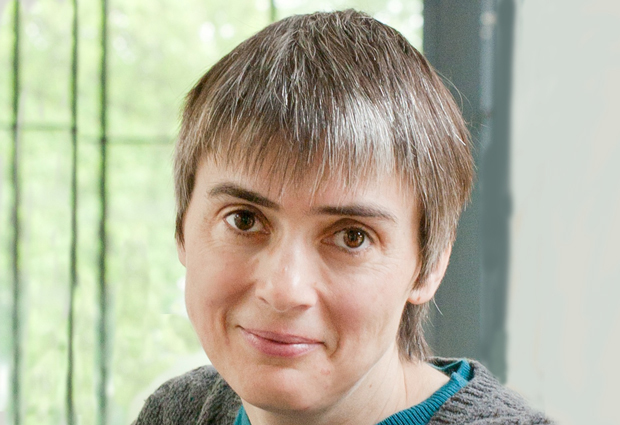
Women in science: Glass half full?
Ottoline Leyser on the fallacy of failure and the road to self-determination

By Catherine Gater
The Wellcome Genome Campus 2017 Sex in Science programme kicked off with a talk by Ottoline Leyser, Director of the Sainsbury Laboratory and Professor of Plant Development at the University of Cambridge. Frustrated by what she saw as pessimistic attitudes to those who have children during their science careers, Leyser collated a collection of inspiring short stories called Mothers in Science – 64 Ways to Have it All. And her key messages to the audience echoed this sentiment.
Value diversity
“Diversity is fundamental to a healthy research culture,” she says. “Scientists expect to be challenged by different ideas and alternative ways of thinking. If everyone in the room thinks the same way, then alternative views will struggle to emerge and to provide that essential role of challenge.”
An important factor in diversity in the research environment is the proportion of male to female researchers. Whereas 60% of life sciences graduates are female, a mere 12% of professors in the field are female. Citing a Wellcome survey, Leyser identifies the transition between postdoc and principal investigator as the stage where many female life science researchers leave the field. What’s happening? The answer may not be straightforward.
Rekindle the passion
The Wellcome study identified three factors that may dampen an initial passion for science in researchers: a lack of funding and instability; pressure to publish; and a culture of long working hours.
“The problem is the pressure you feel to work hours that you don’t have,” Leyser explains. She calls this the ‘publish or perish pressure cooker,’ and argues against a culture that judges a scientist’s contribution by key performance indicators and the number of zeros on the end of their grant cheque.
Take the pressure off
Leyser points out that stepping off the academic career path is often seen as a ‘failure.’
“This is profoundly wrong,” she asserts. “It is not as simple as assuming that women lack confidence to succeed, and so ‘fail,’ while men naturally have the confidence to pursue the hallowed path to professorship.”
If everyone in the room thinks the same way, alternative views will struggle to emerge and to provide that essential role of challenge
Men and women suffer equally from lack of confidence but handle it differently, she says.
“For men, it can be much harder to make a decision that could be seen as a ‘failure’ option,” she said. “Women are too scared to stay in science, and men are too scared to get out of it. Fear should not come into it. We should take the lid off the pressure cooker!”
Drive culture change
Taking the fear out of the equation requires a fundamental culture change.
“We should move away from condemning taking steps off the academic career path as ‘failure’ and celebrate the sheer diversity of careers that are open to those with scientific training,” says Leyser.
Find out what success means to you, and define your own life goals
Teaching, policy making, international relations and project management are just a few of the excellent opportunities beyond research. Leyser believes that both men and women who are considering leaving science are more likely to stick with it once they know how many career options are available to those with a background in science.
Do what works for you
There are no hard-and-fast ‘rules’ for success in an academic career, nor indeed is there a fixed definition of success. If and when to have children, where to do your postdoc, how many hours you work are all personal choices.
“Find out what success means to you, and define your own life goals,” she urges.


